
An oral history of Oxford/AstraZeneca: ‘Making a vaccine in a year is like landing a human on the moon’
In December 2019, hospitals in Wuhan, China, reported that they were dealing with dozens of cases of pneumonia of an unknown cause. They soon identified the disease as being caused by a novel coronavirus.
Teresa Lambe, associate professor, Jenner Institute My brother lived in China, so whenever there was an emerging or break pathogen there, I used to follow it. I remember thinking very early on that this was probably another influenza strain.
Sarah Gilbert, Saïd professor of vaccinology, Jenner Institute [Before Covid] I was developing vaccines against a range of emerging pathogens, specifically Mers, Nipah and Lassa [virus]. We also had applied for funding to work on preparedness for “disease X” – the unknown pathogen that is coming. But it wasn’t funded, so we didn’t manage to put any of those plans in place.
Andrew Pollard, director, Oxford Vaccine Group None of us thought that this was about to be a pandemic.
On 11 January 2020, media reported the first death from what would come to be known as Sars-CoV-2, or Covid-19. The same day, Chinese virologist Zhang Yongzhen published the genome sequence of the virus online. Lambe received the genome in her email inbox early Saturday morning.
Lambe We knew it was coming, and we’d already had a discussion about what to do. We designed [the vaccine] over that weekend.
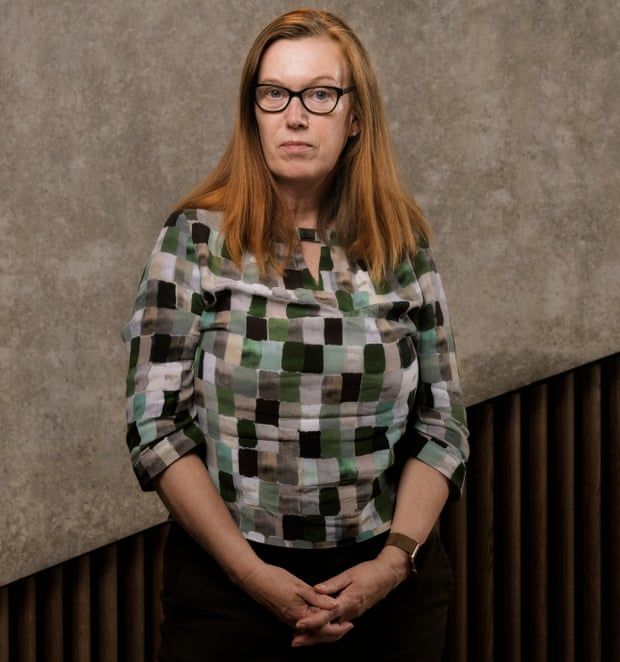 Sarah Gilbert: ‘We’re not a big corporation.’ Photograph: Manuel Vázquez
Sarah Gilbert: ‘We’re not a big corporation.’ Photograph: Manuel Vázquez
Gilbert We knew before the genome came that it was a new coronavirus, not the original Sars, not Mers or any of the seasonal human coronaviruses. But because it was a coronavirus, we knew the part of the genome we needed was the part that encodes the spike protein on the surface. That’s what you want to raise an antibody response against.
Cath Green, head of the clinical biomanufacturing facility Sarah [Gilbert] had already made a vaccine against Mers, so she knew what the vaccine against the new coronavirus was going to look like. They take the DNA sequence of the coronavirus spike protein from the Chinese lab and adapt that to make it the right fit to go into our system. The Jenner lab take that sequence and insert it into a bigger sequence which contains the adenovirus genome. So I received from them a really small tube with a few micrograms of DNA. My job was to make that into the vaccine.
Gilbert It was potentially just a demonstration project at that stage.
On 30 January 2020, the World Health Organization declared the novel coronavirus outbreak a “health emergency of international concern”. By that point, the virus had spread to several countries, including Japan, Taiwan and the US, which closed its borders to Chinese travellers. The same day, the first case was confirmed in the UK.
Pollard Knowing the scale of what we were facing – vaccines normally take 10 to 15 years to produce – was concerning. We had to try to think how we were going to change that into something where we could make an impact before the pandemic could kill millions of people.
In mid-February, Gilbert’s group at the Jenner and Pollard’s Oxford Vaccine Group joined forces to focus their efforts on developing their vaccine candidate. By then, cases were spreading rapidly worldwide.
Pollard We realised that to do something fast and at scale, we all had to come together.
Federica Cappuccini, senior postdoctoral scientist There were emails going around, like, what’s your availability? What skills do you have? What can you do [to help]?
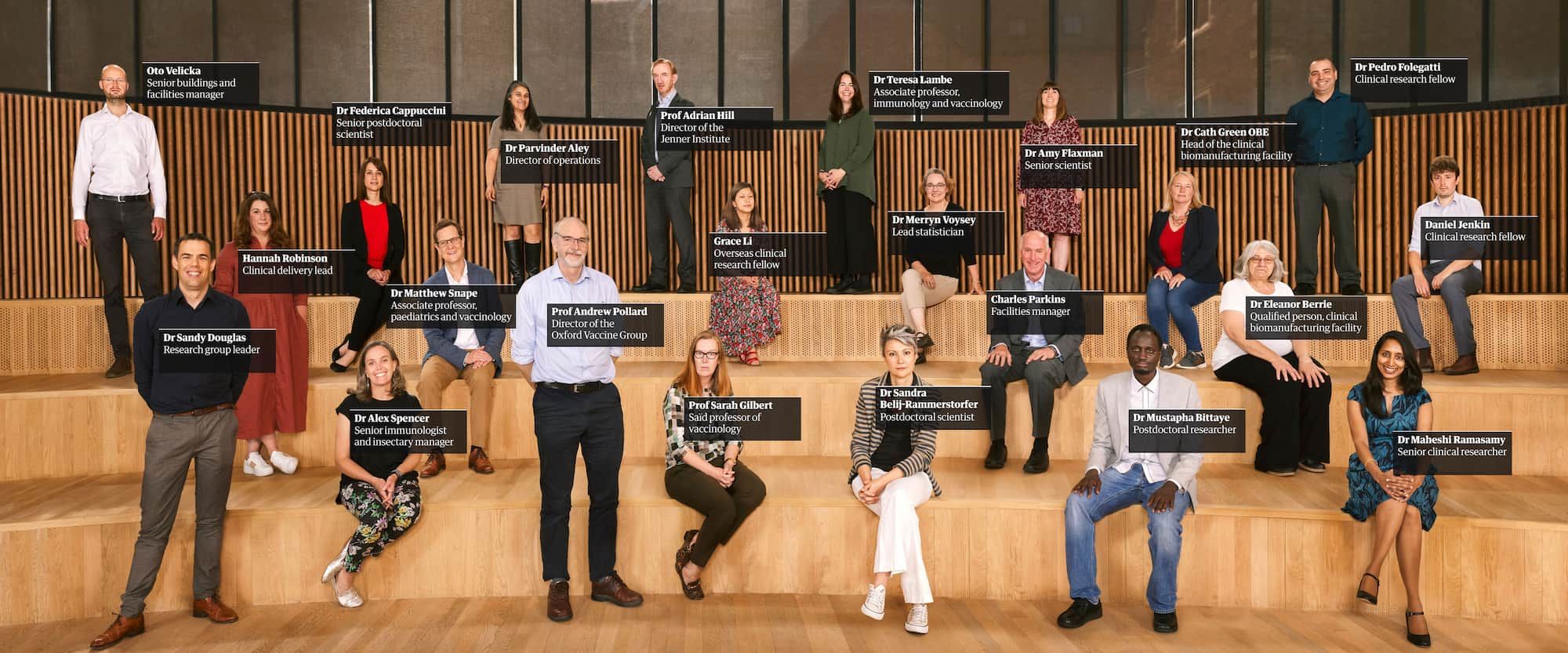
Hannah Robinson, clinical delivery lead I remember when we had that first meeting, one of the scientists was saying that every day we’re not getting a vaccine out there, that’s 10,000 people dying.
Green and her colleagues inserted the DNA – containing the instructions to make the spike protein – into a culture of genetically modified human kidney cells.
Green We have to take the DNA and insert it into the human cells in a very controlled environment. And then we have to identify a clone – a cell that is starting to make the vaccine, but doing that from one single copy of the DNA we’ve inserted. The vaccine is a virus, so it’s multiplying in the cell; eventually the cell pops, the virus is released, and it can then infect the surrounding cells. One virus fills up a cell, that pops, goes up to 100 cells, they pop, fill up 1,000 cells, and so it goes exponentially. Although we started with one virus particle, I think we ended up with 300ml of a solution containing the vaccine. Every single dose of the AstraZeneca vaccine that’s in somebody’s arm today originated with our first clone. D8, it was called.
To test the vaccine’s safety, and its ability to induce an immune response, it was administered concurrently to animal subjects: to mice and pigs at the Pirbright Institute in Surrey, and rhesus macaques, at Rocky Mountain Labs in Montana in the US. Meanwhile, the Oxford scientists raced ahead with planning a phase 1 clinical trial.
Pollard Normally you might get into studies in mice, look at the data from those, then you might go into non-human primates, but that’s several years gone by. If you get good results, you go and find someone to fund you to do the manufacturing, which might take 18 months, then you start the phase 1 trial. We realised that you have to overlap all those processes. So the animal studies started in February, and by the time we got to March, the manufacturing was under way for human trials – and we didn’t even have any data from the animal studies yet.
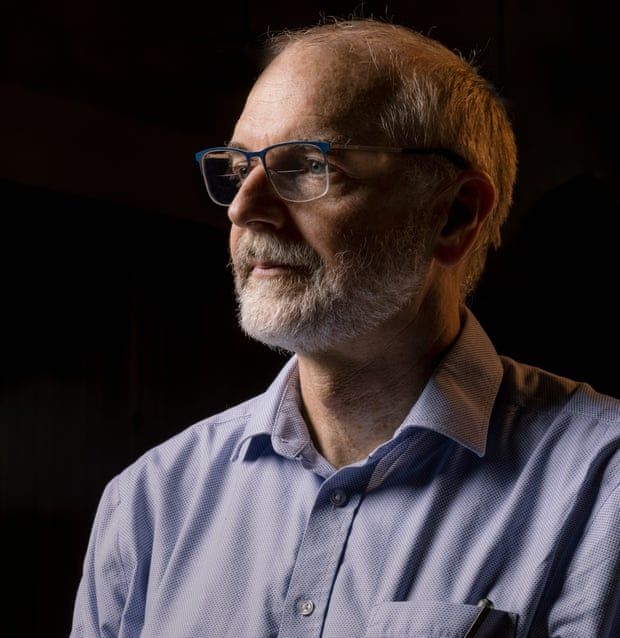 Andrew Pollard: ‘We need to be ready for new variants.’
Andrew Pollard: ‘We need to be ready for new variants.’
Robinson You’ve got to do submissions to ethics committees and the MHRA [Medicines and Healthcare products Regulatory Agency, which approves the use of vaccines in the UK] – all the documents that are used to run a trial. They need to be written and reviewed, then submitted, which in a pre-pandemic process would take maybe six months.
Pollard The MHRA made this the priority, so they put more people on it. Everything was sent in; seven days later they were able to give approval.
On 23 March 2020, with cases hitting 6,650 a day in the UK, Boris Johnson announced the UK would enter the first lockdown. Non-essential businesses were closed; all non-essential workers were ordered to stay at home to prevent spreading the virus. The same day, the government awarded a £2.2m grant to fund the Oxford team’s research.
Maheshi Ramasamy, senior clinical researcher I’m a consultant trained in infectious diseases and my day job is looking after people in the hospital. The first time we saw cases here in Oxford was just after that February half-term. We started to see one or two, and admitted them as a precaution. Then, around mid-March, I turned up on Monday on the ward. On the Friday we’d had one person with Covid; now there were 11. They were much older, they were very frail, and they were dying.
Lambe I remember the walk from my house being so quiet, not having to look before crossing the road because there were no cars. It was eerie.
Green Everything ground to a halt. We were struggling to get masks, disinfectant. But because we’ve got a lab here, and hand sanitiser is effectively just ethanol, a bit of hydrogen peroxide and some glycerol, we made a few litres and splashed that around.
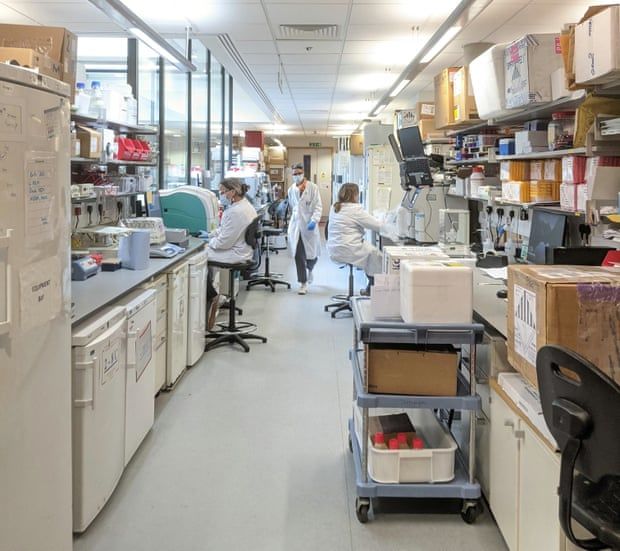 Researchers working in the Jenner Institute.
Researchers working in the Jenner Institute.
Pollard There was no PPE available within the NHS. We needed thermometers for our volunteers; there were none anywhere in Europe.
Gilbert I remember a conversation with Matt Hancock, him saying, “What do you need?” I said, “PPE.”
Ramasamy That was a really miserable time to be working in hospital. We were all terrified of this new disease that we’d never seen before. We didn’t know how to manage it. There was one moment when somebody said to me, “Is this what the end of the world feels like?”
By early April, as the daily death toll in the UK topped 1,000 for the first time and the prime minister was put in intensive care, the first batch of the vaccine was nearly ready to begin the phase 1 clinical trial.
Green There’s a stage where you have to centrifuge the material through a gradient, and all of the vaccine lines up in one layer. You can see it. Kathy, one of my production team, came out and said: “Look at these babies!” We were like, “Oh my God!” That was the day when we knew we had enough, and we could get it into somebody’s arm in three weeks’ time. That was great. I will remember that always.
Pollard We had by then already got ethical approval, and the vaccine had been made. So the day after the [successful] results from the animal trials were available, we gave the first dose.
On 23 April, the first dose of the Oxford vaccine, then known as ChAdOx1, was administered to Elisa Granato, a microbiologist. Within 48 hours, fake news websites began to spread a rumour that Granato had died from side-effects of the vaccine.
Pollard She hadn’t, of course.
Gilbert Her relatives had to be kept informed, because her family and friends were hearing that she’d died.
Pollard The BBC did an interview that Sunday morning with Elisa and they were able to demonstrate that she was alive. In that case, the media in the UK saved the day. Despite that, some of those fake news stories have really damaged confidence in vaccines.
Lambe I don’t think I appreciated how much we needed to communicate with the public until we were almost halfway through.
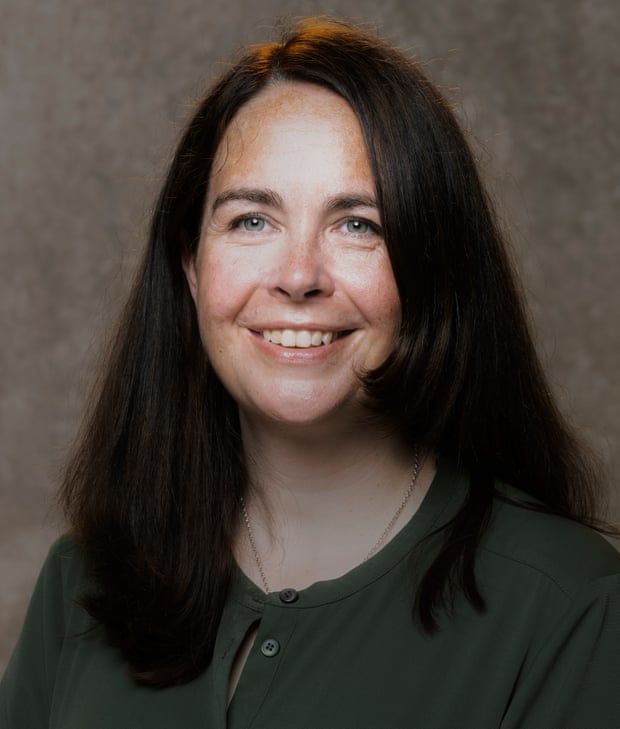 Teresa Lambe: ‘I remember thinking this was probably another influenza strain.’
Teresa Lambe: ‘I remember thinking this was probably another influenza strain.’
Gilbert What I’m trying to do more recently is let people know that, you know, we’re not some other type of being. We’re not a big corporation, we’re not evil big pharma. But we work with big pharma, because big pharma have a useful job to do.
Lambe And they’re not evil! They’re really nice people.
On 30 April, Oxford University signed a deal with the British-Swedish pharmaceutical company AstraZeneca to mass-produce the vaccine. Crucially, the company agreed to Oxford’s demand that it provide the vaccine for no profit to developing countries during the pandemic.
Gilbert We weren’t involved in those discussions. It was other people within the university. We were frankly flat out with what we were doing at that time.
Lambe But it was an absolute for everybody in the team.
Pollard We wanted to have a vaccine that could be distributed globally so you need a big pharmaceutical company to do that. AstraZeneca fit the bill. The most extraordinary thing about them is they were prepared to do that not-for-profit. It’s almost unthinkable that a business would think that was a reasonable thing to do.
With phase 1 trials demonstrating a successful antibody response and no severe side-effects, plans were put in place to commence a phase 2 and phase 3 trial simultaneously in the UK and South Africa, and later Brazil and the US. Meanwhile, the US, UK and other governments signed deals with AstraZeneca to purchase tens of millions of doses. Rival companies Pfizer and Moderna had also begun clinical trials.
Pollard The first lockdown was having the most incredible impact on suppressing the virus. By the time the trials actually started, it was clear that there weren’t going to be enough cases. So for our phase 2 and 3 trials, which were already being planned through April, there were two bits of thinking. One was: we have no idea what the next wave will look like, so we ought to be geographically dispersed. It could be the next big wave was in the UK, or it might be that we needed to be in South Africa or Brazil. The other was to make sure we wouldn’t find the people in Africa or South Asia or Latin America saying, “Well, this vaccine has only been tested in Europe.” So that was the rationale for being in each of those countries.
Throughout the trial, supply of the vaccine was limited, which led to extraordinary measures.
Robinson I remember being on the call with Andy [Pollard] on a Sunday with the Italian manufacturers, and we decided that we would have to charter a plane and get the vaccine to the UK, so our UK team could label it, so it would be available the following day for us to run the clinic.
It emerged that, due to a technical complication, the vaccine doses manufactured in Italy were of a different concentration from those Green’s lab had produced in Oxford.
Gilbert We have to measure the concentration of the vaccine and there are different ways of doing it. Advent [the Italian manufacturer] use one assay [test] and we use another one. When we got the batch from Italy, we discovered we were getting different results from the two assays. One of them was giving us a result twice as high as the other. So we had to decide which concentration to use to continue with the clinical trials. If we had chosen one, there was a risk we could be giving half the dose, and if we chose the other, there was a risk we could be giving twice the dose. So we went with the safe option, which was to give the one where if we were wrong, we’d be giving half a dose.
Pollard We went back to the MHRA and they agreed we should adjust the dose. Then we continued with the trial. And I think that huge flexibility – the regulator allowing us to adjust that – actually saved an enormous number of lives.
By the summer, as the world waited for news of a potential vaccine, the Jenner Institute became the target of unprecedented attention from world media, but also anti-vaccine protests, cyber attacks and even thieves.
Charles Parkins, facilities manager, Old Road Campus We did have demonstrations outside, a guy and his supporters making a lot of noise and allegations. We had a few of those; they were dealt with by university security and police. But the person who shut the loudmouth up was one of the builders working on the site. After that, he lost his voice.
Oto Velicka, senior buildings and facilities manager We had a lot of cyber attacks and threatening emails, tweets on our feeds and social platforms, and phone calls, which we had to get the police involved in.
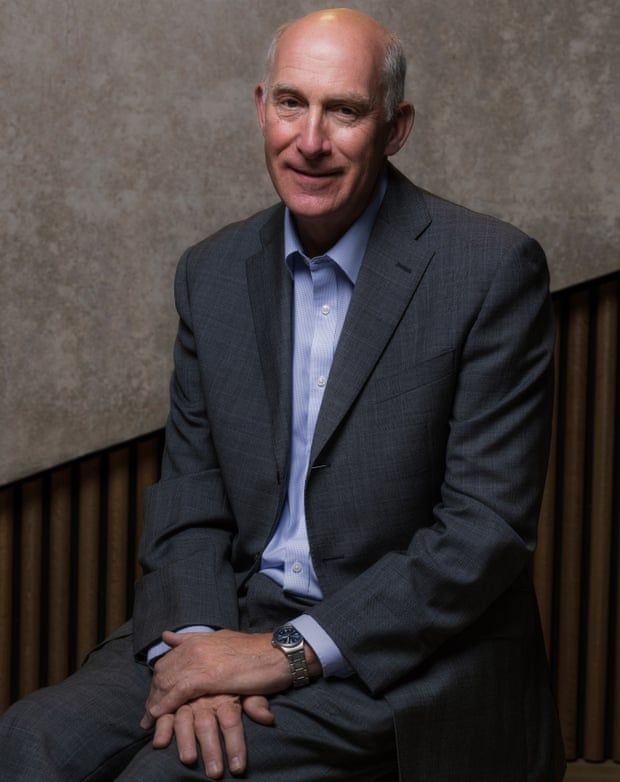 Charles Parkins: ‘We had people protesting outside.’
Charles Parkins: ‘We had people protesting outside.’
Parkins One thief got into the building. He rummaged through offices, found a couple of brand new computers, put them in his backpack and left. The strange thing is, two or three days later, another chap banged on the front door saying, “I want to come in.” I said, “You’re not coming in.” He dropped a plastic bag by the door. I called security, thinking it could be a bomb or anything. They came across and said, “Charles, it’s four brand new computers.” I don’t know what the connection was between the two guys, but we ended up with our computers back.
On 9 November 2020, the world rejoiced as Pfizer/BioNTech announced their vaccine was 90% effective. On 16 November, Moderna announced its vaccine showed 94.5% efficacy. A few days later, Oxford had amassed enough data to release initial results on the efficacy of the Oxford/AstraZeneca vaccine. Overall, the data showed its vaccine was 70% effective at preventing Covid-19. Confusingly, the data showed that for those given two full doses, efficacy was just 62% – but a smaller group given the half-dose, followed by a full dose, saw 90% effectiveness.
Cappuccini Because Pfizer and Moderna released their efficacy data before us, that window – which wasn’t really a long time – felt like ages.
Pollard I was sitting here and the data safety monitoring board members went through the data with me. I was exhausted as we’d been working so hard to get everything ready. It was quite a surreal moment because no one else in the team was here. It was just me on my own seeing the data for the first time. I phoned Sarah Gilbert and told her the results.
Gilbert I got a call on Saturday evening from Andy Pollard, which surprised me, because he’d told me not to expect any results until Sunday. I was saying, “Why can’t you just tell me the result?” Because I was expecting a number, x% – but it was more complicated than that, as we all now know. But it was effective, and that was great.
Pollard The exhaustion meant that the emotion was perhaps less than there might have been.
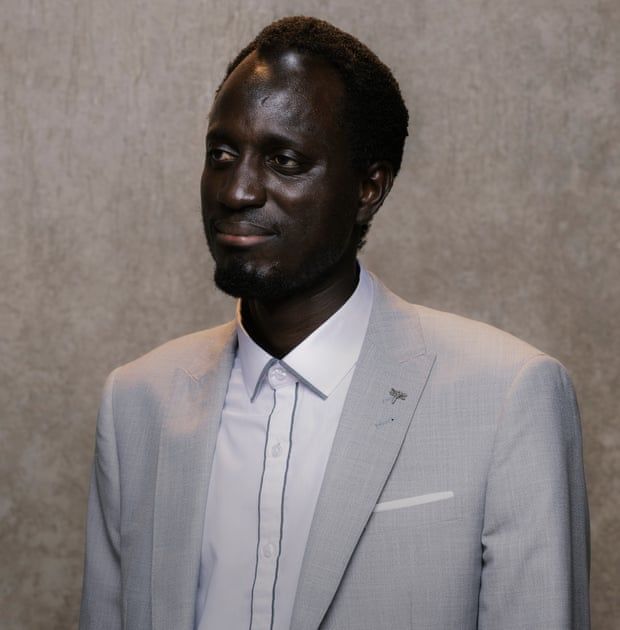 Mustapha Bittaye: ‘Every effort, every sleepless night, have all paid off.’
Mustapha Bittaye: ‘Every effort, every sleepless night, have all paid off.’
Mustapha Bittaye, postdoctoral researcher I knew the vaccine was going to be used across the globe. My family back in the Gambia are going to benefit from this vaccine. So when I heard about the efficacy results, I was so happy. It brought a sense that every effort, every sleepless night, the long hours, have all paid off.
Cappuccini Because these vaccines are going to go in the arms of the people we love as well.
On 23 November, AstraZeneca released its findings. The complexity of the results led to criticism in the scientific community, who were unhappy that the company had communicated the results by press release, without making the underlying data immediately available.
Gilbert There is a legal requirement, with AstraZeneca involved: if they have any data that might affect their stock price, it has to be communicated immediately before the markets open. Our preference is absolutely not to release data by press release; we want the peer-reviewed publication. But that had to happen.
Ramasamy The low dose thing was a bit of a red herring. When we went back and looked at the data, it was actually the interval between doses that was important. So the longer the gap between the first and the second dose – when you go from four weeks to 12 weeks – you get better immune responses.
On 30 December 2020, the MHRA approved the vaccine for rollout in the UK. In January, in the midst of the second wave, hundreds of thousands of doses were administered to at-risk groups in the UK. However, because of manufacturing problems, supplies to the EU were delayed, triggering a political crisis. To make matters worse, French president Emmanuel Macron claimed the vaccine was “quasi-ineffective” in those over 65 – seemingly based on a lack of data in older age groups.
Pollard There were two reasons why we didn’t have enough cases in that older age group. One was because in all countries, older adults were more conservative in the pandemic, so they were less exposed to the virus. The second reason is that there was nothing known about the vaccines, and our data safety monitoring board said, “We are a bit more worried about older adults, so we think you should do them sequentially. Look at the safety and get the immune response data before you start your efficacy arm in that older age group.” So by the time the interim analysis in November came, we hadn’t had much time to accrue data in older adults.
 The Old Road Campus research building.
The Old Road Campus research building.
Gilbert We’re not involved with [the politics] at all, because that is AstraZeneca. We’re watching the news like everybody, but there’s nothing we can do about it. AstraZeneca had made very large efforts to get manufacturing established. But these aren’t small molecule drugs; these are not very straightforward things to manufacture. Nobody’s done this at this scale before, let alone at this speed, so you can’t predict how long it’s going to take.
Pollard I don’t think [supply] could have been any better than it is today, given how hard it is to make vaccines.
Lambe Still more than 90% of the Covax doses are AstraZeneca. And that to me is a big deal.
Gilbert Our aim from the very beginning has been to make a vaccine for the world, not financial profit. As there are still not enough doses of licensed Covid vaccines for everyone in the world, we need to make sure political decisions don’t result in any of those doses going to waste.
Reports began to emerge linking the AstraZeneca vaccine to rare blood clots, as well as low platelet counts, in a very small number of recipients. (The Johnson & Johnson vaccine, which also uses an adenovirus vector, has also been linked to similar cases.) It is now thought that blood clots may affect about one in 100,000 patients. In response, many countries have decided not to administer the vaccine to lower age groups. Fear of blood clots is also contributing to low uptake in poorer countries.
Ramasamy All drugs have side-effects. We were looking out for it within the clinical trials, monitoring every time a participant had any kind of serious medical event. As a clinician, it’s always devastating when you hear about severe side-effects.
 Maheshi Ramasamy: ‘It was the interval between doses that was important.’
Maheshi Ramasamy: ‘It was the interval between doses that was important.’
Gilbert It’s difficult because different vaccines were being used in different age groups in different countries. At one point, Europe was saying that it was a phenomenon happening to women, not to men. That’s not actually true – it was just that the vaccine was mainly being given to young healthcare workers, the majority of whom are women. We still don’t understand it. People have come up with a number of hypotheses, and we’re investigating them. It may take quite a long time to fully understand, because it is so rare.
Pollard Over the course of the last year, about 1,800 people out of every million have died with Covid. And when we look at the death rate among the vaccinated people from their side-effects, it’s about two per million. So it’s absolutely clear from an overall risk-benefit perspective that we should be vaccinating people.
Parvinder Aley, director of operations If you would take any other regulated drug and accept the regulators know what they are doing, this is no different. It’s gone through every single one of those processes. And we’ve lived a lot of those processes. So I can tell you the regulators have scrutinised this in great detail, not just in the UK but globally, and have been willing to give it authorisation – and that many regulators can’t be wrong.
Oxford and AstraZeneca have recently begun testing a reformulated vaccine that is designed to better target new variants, which could also be used as a booster shot.
Pollard The first design work began in mid-December. At the moment, we’re in a position where we see very good protection [from the current vaccine] against severe disease from the variants that have been circulating. So the question I think will be: do you need a new variant vaccine? I still don’t know, because we need more evidence. Do we need to be ready? Yes. And that’s why we’re developing new vaccines. We hope we’ll have data in the autumn.
Gilbert We already know from the clinical data that we’re getting good protection against severe disease and hospitalisation against variants. It’s not like the vaccine suddenly doesn’t work at all any more. [Two doses are up to 92% effective at preventing hospitalisation, according to Public Health England data.]
In June, seven of the Oxford scientists, including Gilbert, Lambe, Pollard, and Green, were named on the Queen’s birthday honours list for their services to public health during the pandemic. For the Jenner and Oxford Vaccine Group, the intensity of the last year is taking its toll.
Gilbert It’s been gruelling. The last 18 months have been intense, and we’ve had to respond in the best way we could as a team. There has been very little time to think of anything else, and in addition to developing the vaccine we have done what we can to communicate what we know and don’t yet know, making sure that we have scientific justification for anything we say. It has been frustrating, after the enormous care that has been taken at every stage of the work, to see others have not always communicated findings clearly or accurately.
Pollard It was intense for such a long period of time. We didn’t have any weekends off.
Ramasamy So many people say that they still feel traumatised by the time working with Covid patients. It was just incredibly awful.
Bittaye The development of the vaccine in a year is like the modern-day equivalent of landing a human on the moon. It’s a massive achievement. And it all happened on the back of an unprecedented public-private sector collaboration.
Lambe We and others have sacrificed so much during this pandemic. I don’t want the next generation to have to do that. I don’t want my kids to have to do it. And it’s only a matter of time to the next pandemic – because there will be one. We need to put processes in place so we’re in a better place next time. I worry that we’re going to try to run into the sunset and forget what we’ve learned and what we’ve sacrificed.










